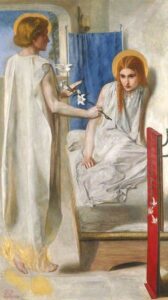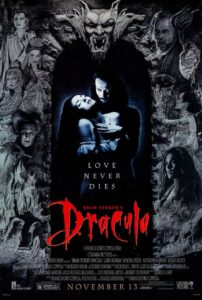In the novel, The Picture of Dorian Gray, the main character Dorian is responsible for the death of his ex-lover, Sibyl. He states, “I loved you because you were marvelous, because you had genius and intellect, because you realized the dreams of great poets and gave shape and substance to the shadows of art,” (Wilde 74). In this scene, Dorian’s anger gets the best of him and foreshadows his own fate. After Dorian says this to Sibyl, she takes her own life. The words he uses surrounding her are things that do not have to do about their relationship, instead, they are just beautiful words to describe someone that he may not have even known very well. By using the word art in this line, it can be taken as a nod to the own art that exists of Dorian, the portrait that hangs in his house. In this way, his fate is sealed.
After Sibyl dies, Dorian states “the birds sing just as happily in my garden” (Wilde, 85). This lack of empathy towards her death shows that Dorian saw her as no more than just his muse and his “one love.” This mirrors the way that Basil views Dorian, as his muse, his only muse. Much like Sibyl, Dorian is no more than a blank canvas where people paint their own ideas onto it. Unfortunately for Dorian, both Lord Henry and Basil painted their ideas on his canvas which turned him into a muse with both good and evil. Ultimately, because he is just a muse to Basil, Basil or himself must die to escape the tragedy of Sibyl’s fate. Luckily for Dorian, he kills Basil, his creator. Muses cannot live without the admiration of their creator; they live off the attention and approval of their artist. They give “substance to the shadows of art.” In this way, Sibyl and Dorian are both very similar and their deaths are equally as tragic. While Sibyl is pure and a beautiful canvas that gets splashed by a paint bucket of hate, Dorian is a canvas that was equally splashed, a fight between good and evil artists.
If Dorian and Sibyl are both just muses of other people, then this makes them character that only exist due to the other characters in the novel. While Dorian is the main character, he would not exist without Henry and Basil. During this time, there were many outside influences, fake protectors like Sherlock, scary stories like Frankenstein, and the soulful horror of Dorian Gray. The novel shows the readers that everyone can be influenced, art influences the reader, and everyone is connected by the way they influence each other, we are all a canvas to be imposed upon. This is important because it shows that Dorian is not a character on his own, “it is the spectator, and not life, that art really mirrors” (Wilde, Preface).

